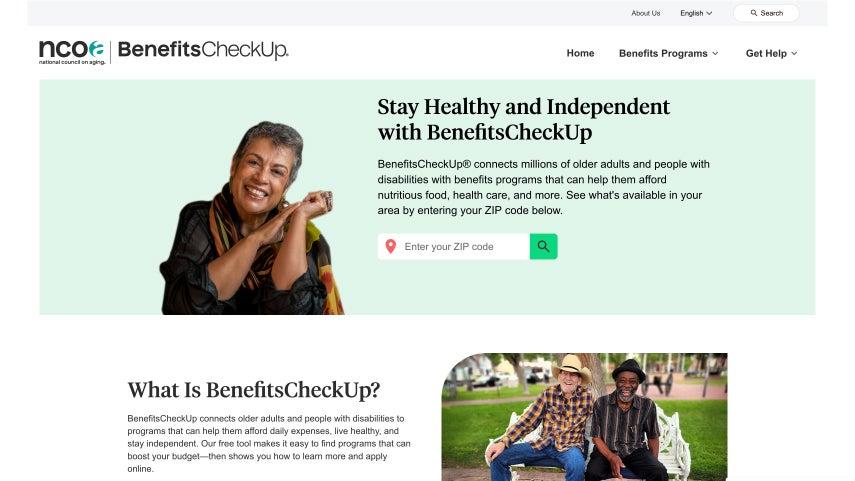
Related Topics
Scams that target older adults are just one part of the fraud landscape, and veterans have been no less of a target. According to the Federal Trade Commission, veterans, military service members and their spouses lost $477 million to scams in 2023.1 The median financial loss for these same adults increased with age at $500 for those in their 60s compared with $803 for adults in their 70s and over $1,400 for adults in their 80s.1 Veterans should be especially alert about scams that target their service-earned benefits, such as the benefits buyout scam.
What is the benefits buyout scam?
A benefits buyout scams when a scammer calls a veteran and promises to give them a lump-sum payment in exchange for the rights to future Department of Veterans Affairs (VA) disability or pension payments.2
Operation Protect Veterans, a joint crime prevention campaign created by the U.S. Postal Inspection Service and AARP, advises veterans that in these turbulent economic times, they need to carefully examine offers like this and others that scammers try to use.
How does the benefits buyout scam veterans?
A scammer who offers the lump-sum cash payment in exchange for the benefits payments will fail to mention there are plenty of strings attached. For starters, many scammers will not let veterans terminate the deal early—they’re essentially “locked in.” They may also require the veteran to buy a costly life insurance policy, which guarantees payment in case the veteran passes away.2
These pension advances could also mean higher taxes for veterans if they wind up in a higher tax bracket. This temporary boost in income may also end up disqualifying the veteran from other needed government benefits.
How can I protect myself from being scammed?
In general, it’s best to steer clear of anything that involves signing away your VA benefits. But if you are curious about whether you’re a target of a benefits buyout scam or any fraud targeting veterans, here are some steps you can take:3
- Don’t get pressured into making an immediate decision or sending any money. Never sign or agree to any arrangement before seeing it in writing.
- Ask a trusted friend, family member or certified financial planner to review anything requiring your signature.
- Check out the company or individual making the offer. See if they are licensed in that state to offer financial services or, check with organizations such as the Better Business Bureau.
- Confirm that the person or company making the offer is a VA-accredited representative.
What should I do if I’ve been scammed?
Veterans have resources they can access if they think they have already been scammed. They should file a report with:
- The Federal Trade Commission: If you’re an active or retired servicemember, the FTC wants to hear about your experiences. When you do, you’ll also be telling more than 2,300 law enforcers who are members of the Consumer Sentinel Network.
- Their state’s Attorney General.
- The Better Business Bureau.
- The AARP FraudWatch Hotline (877-908-3360).
If I don’t take the buyout but still need money, what should I do?
Consider taking a loan from a reputable financial institution or lender instead, such as a credit union or bank. You can also take advantage of free financial counseling if you’re a beneficiary for the following VA life insurance plans:4
- Family Servicemembers' Group Life Insurance
- Servicemembers' Group Life Insurance
- Traumatic Injury Protection Program
- Veterans' Group Life Insurance
Beneficiaries for all four plans can use FinancialPoint for any help they need 24/7. They can access FinancialPoint online and click on the “Help” link for login instructions or email fcs@FinancialPoint.com. Traumatic Injury Protection Program beneficiaries can also call 800-428-3416 for help, while beneficiaries from the remaining plans can call 888-243-7351.
While veterans may feel ashamed for being scammed, they shouldn’t let that stop them from helping other veterans by reporting it. For more information on other scams targeting vVeterans, visit the Operation Protect Veterans website.
Sources
1. Federal Trade Commission. Consumer Sentinel Network Data Book 2023. February 2024 Found on the Internet at https://www.ftc.gov/system/files/ftc_gov/pdf/CSN-Annual-Data-Book-2023.pdf
2. AARP. Veteran Benefit Buyout Plans: A Bad Idea! September 10, 2023. Found on the Internet at https://states.aarp.org/veteran-benefit-buyout-plans-a-bad-idea-sc-ca-wp-money
3. United States Postal Inspection Service. Operation Protect Veterans. Found on the Internet at https://www.uspis.gov/veterans
4. U.S. Department of Veterans Affairs. Life Insurance. Found on the Internet at https://benefits.va.gov/insurance/bfcs.asp



